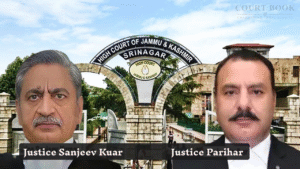A somewhat tense afternoon unfolded in Courtroom No. 33 of the Delhi High Court on Monday as Justice Girish Kathpalia delivered a reserved order in a dispute that has drifted through the legal system since 1992. At the centre of the storm was petitioner Vijender Tanwar, who wanted to enter the long-pending injunction suit concerning agricultural land in Chhattarpur. The judge, however, refused, noting that such a late entry would only distort the nature of the original case.
Background
The original suit was filed more than three decades ago by the predecessor of respondent Anand Tyagi. He claimed he had been in peaceful cultivation of the land since before 1947 and feared being forcibly dispossessed by the defendant, now respondent No. 2. The suit was simple in form: a request for protection of possession - nothing more, nothing less.
Read also: Supreme Court signals fresh push for pending 2025 guidelines, adjourns plea by disabled students
Tanwar came into the picture much later. He asserted that he purchased the same land in 2010 through a chain of GPA-style documents, many of which were unregistered. He argued that because he, too, claimed ownership and possession, he must be included as a party to the case.
But his arrival raised eyebrows. The trial court found that Tanwar had waited eight years before seeking impleadment, and his predecessor-in-interest, one P.D. Aggarwal, had already tried and failed to join the same suit in 2016.
Court’s Observations
Justice Kathpalia walked through each angle with steady pacing, occasionally glancing at the files stacked high beside him. “The real dispute in the suit,” he remarked, “is whether the plaintiff is in possession and whether that possession faces threat from defendant No. 2.”
Read also: Supreme Court Slams Madhya Pradesh High Court for 'Shocking' Habeas Corpus Bail Order, Sets Aside
The bench underlined that the case is not about determining ownership - a key distinction. Bringing in Tanwar, the judge said, would drag the case far beyond its original boundaries. “If impleaded, the suit would effectively convert into a title dispute,” the court observed, “and that cannot be permitted.”
He also referenced landmark rulings, explaining that a plaintiff has the right to choose whom he wants to sue, and strangers cannot push their way into a case unless their presence is absolutely necessary for deciding the issue at hand.
Justice Kathpalia also did not ignore the timing issue. Tanwar’s eight-year delay, he noted, showed he was “watching proceedings from the sidelines” and only appeared when the case reached final arguments. The judge’s tone sharpened briefly as he read from an earlier Supreme Court caution: adding parties at the last stage risks restarting the case “as if from square one,” something courts must avoid.
“The bench observed, ‘A late entrant cannot widen the scope of a simple injunction suit and transform it into a complicated title battle.’”
As for Tanwar’s argument that a 2022 High Court order supported his claim, the judge clarified that the earlier bench had merely ordered reconsideration because Tanwar personally had not been heard at that time. “It did not say P.D. Aggarwal’s dismissal was irrelevant,” the court clarified.
Decision
With all this on record, the High Court upheld the trial court’s order and refused Tanwar’s plea to join the proceedings. The petition, along with pending applications, was dismissed. The matter now returns to the trial court for final adjudication between the original parties alone.
Case Title: Vijender Tanwar vs Anand Tyagi & Anr - Delhi High Court Rejects Impleadment in 33-Year-Old Injunction Suit
Court: High Court of Delhi
Judge: Justice Girish Kathpalia
Case Number: CM(M) 220/2023
Date of Judgment: 17 November 2025















